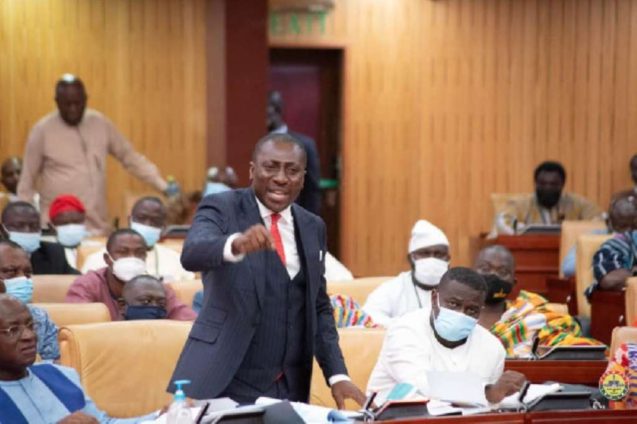Government has for the second time this year, failed to re-submit the E-levy Bill to Parliament for consideration.
The bill was expected to be withdrawn and reintroduced in Parliament by the government on Friday, February 11, 2022 but up until February 25, the bill was not included in the business statement of the House.
The Deputy Majority Leader, Alexander Afenyo-Markin while presenting the business statement for next week in Parliament on Friday, March 4, 2022, said the House will be notified at the appropriate time.
“The e-levy falls under the programmes that we have proposed. So, as and when it’s supposed to be taken, members will be put on notice. Road tolls are not being taken, of course. We have already passed the appropriation government should be spending in the 2022 budget.”
He added that, “Due to the delay in the passage of the E-levy, government has already lost revenue for January and February. I believe that when the time comes, we will do the needful to make Ghanaians know that we mean business.”
E-Levy
Finance Minister Ken Ofori-Atta, presenting the 2022 budget on Wednesday, November 17, 2021, announced that government intends to introduce an electronic transaction levy (e-levy).
The levy, he revealed, is being introduced to “widen the tax net and rope in the informal sector”. This followed a previous announcement that the government intends to halt the collection of road toll.
The proposed levy, which was expected to come into effect in January, 2022, charges 1.75% on the value of electronic transactions. It covers mobile money payments, bank transfers, merchant payments, and inward remittances. There is an exemption for transactions up to GH¢100 per day.
Explaining the government’s decision, the Finance Minister revealed that the total digital transactions for 2020 were estimated to be over GH¢500 billion (about $81 billion) compared to GH¢78 billion ($12.5 billion) in 2016.
Thus, the need to widen the tax net to include the informal sector.
Although the government has argued that it is an innovative way to generate revenue, scores of citizens and stakeholders have expressed varied sentiments on its appropriateness, with many standing firmly against it.
Even though others have argued in support of the levy, a section of the populace believe that the 1.75% e-levy is an insensitive tax policy that will deepen the already prevailing hardship in the country.
Latest Stories
-
Red Notice for Ghana’s wanted Ex-Minister deepens national divide
10 minutes -
Constitutional Review Committee engages Akufo-Addo, Bawumia and Kyei Mensah-Bonsu
10 minutes -
Ghana’s economy must be more diversified – Swiss Ambassador to Ghana
11 minutes -
Government to ban importation of excavators without permit under “No Permit, No Excavator” policy
27 minutes -
Builsa North MCE commends president’s ‘Tree for Life’ initiative
32 minutes -
GH¢1 fuel levy necessary to avert 50% rise in electricity tariffs – Nii Lante Vanderpuye
35 minutes -
Seth Terkper justifies GH₵1 fuel levy
37 minutes -
Illegal mining surges in Western region despite ongoing crackdown – Report
52 minutes -
JoyNews uncovers Chinese firms sold millions of washing detergents without GSA certification
57 minutes -
June 4 Commemoration: Let’s build bridges across our differences – Deputy Interior Minister
1 hour -
Government to ban wooden school furniture, styrofoam food packs
1 hour -
Tarkwa forestry officials attacked by illegal miners in Neung South reserve
1 hour -
Full list of Awardees at the 9th Edition of the Annual CEO Summit
2 hours -
Freedom at last: Court of appeal acquits Ataa Ayi’s alleged accomplice after 23 years in prison
2 hours -
Ishamael Yamson urges President Mahama to ring-fence fuel levy proceeds as promised
2 hours

